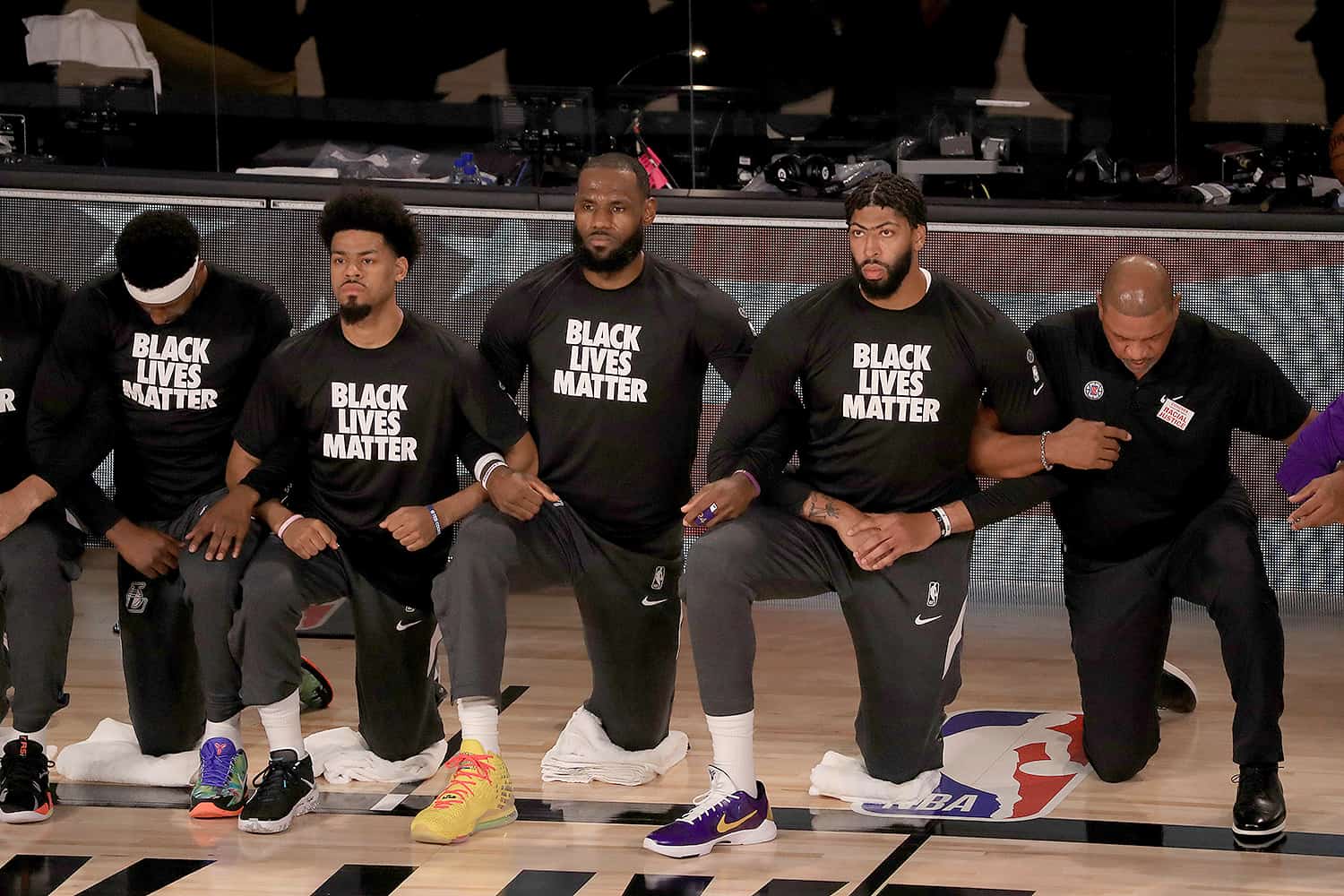
Rund Khayyat is a student at Harvard Law School.
Unprecedented collective action by NBA players has changed the narrative across the entire professional sports landscape, centering the focus on racial reform in the wake of this week’s shooting of Jacob Blake, an unarmed black man. After a boycott of Wednesday’s NBA playoff games followed by two contentious meetings with the Players’ Union, NBA players decided Thursday to continue the season in the League’s quarantine bubble.
Players voiced ongoing concerns in the meetings, particularly after Blake’s shooting, that the League was not doing enough to address systemic racism and that players would be better served returning to their communities. As this blog has covered, the NBA has centered its messaging on race issues since its season resumption, featuring a large BLM on its courts and allowing players to sport BLM symbols on their jerseys. But iconic NBA stars, including LeBron James, demanded more during Wednesday’s union meeting, which left the league at a crossroads. Eventually, the players decided for themselves to continue playing.
Nearly three weeks after Trump signed an executive order to boost unemployment aid through the Lost Wages Assistance Program, only four states (Arizona, Missouri, Tennessee, and Texas) are paying out the $300 federal supplement. For most jobless Americans, additional government aid will trickle in mid-September or later. Business Insider reported Thursday that the slow rollout underscores the lack of immediate impact that the order had on aiding millions of jobless Americans. Instead, those Americans are forced to get by without the $600 federal unemployment benefit that expired nearly a month ago. The delay directly contradicts Treasury Secretary Steven Mnuchin’s August 10 assurance that most states would execute the Program within two weeks – a deadline that came and went.
A new report has revealed that fashion brands and retailers are using the pandemic as a shield under which to retaliate against unionized workers abroad. The report, UK labor rights non-profit Business and Human Rights Resource Centre, surveys the plight of unionized workers at manufacturers for H&M, Zara and Levi Strauss, as well as luxury brands Michael Kors, Tory Burch and Tapestry (Kate Spade) in India, Cambodia, Myanmar, and Bangladesh.
The report found that garment factories abroad are “using the pandemic as a cover to attack workers’ freedom of association,” which is a breach of international labor laws. Though retaliation against workers is common in the fast-fashion industry, the pandemic has made it easier for companies to abuse laborers on a broader scale, with more impunity. Brands are deferring to local labor laws that fall short of international standards rather than deferring to international laws, which better protect workers and legally take precedent. Among other findings: about 5,000 unionized garment workers have been targeted for dismissal after asking for COVID-19 protections; and garment workers across four countries in Asia have faced violent crackdowns during COVID-19 for fighting for the wages they are owed.






Daily News & Commentary
Start your day with our roundup of the latest labor developments. See all
January 29
Texas pauses H-1B hiring; NLRB General Counsel announces new procedures and priorities; Fourth Circuit rejects a teacher's challenge to pronoun policies.
January 28
Over 15,000 New York City nurses continue to strike with support from Mayor Mamdani; a judge grants a preliminary injunction that prevents DHS from ending family reunification parole programs for thousands of family members of U.S. citizens and green-card holders; and decisions in SDNY address whether employees may receive accommodations for telework due to potential exposure to COVID-19 when essential functions cannot be completed at home.
January 27
NYC's new delivery-app tipping law takes effect; 31,000 Kaiser Permanente nurses and healthcare workers go on strike; the NJ Appellate Division revives Atlantic City casino workers’ lawsuit challenging the state’s casino smoking exemption.
January 26
Unions mourn Alex Pretti, EEOC concentrates power, courts decide reach of EFAA.
January 25
Uber and Lyft face class actions against “women preference” matching, Virginia home healthcare workers push for a collective bargaining bill, and the NLRB launches a new intake protocol.
January 22
Hyundai’s labor union warns against the introduction of humanoid robots; Oregon and California trades unions take different paths to advocate for union jobs.